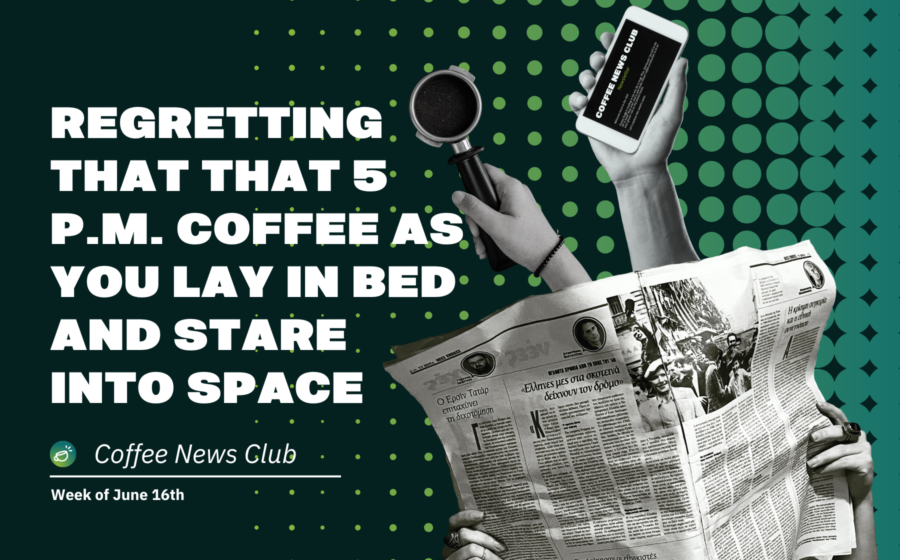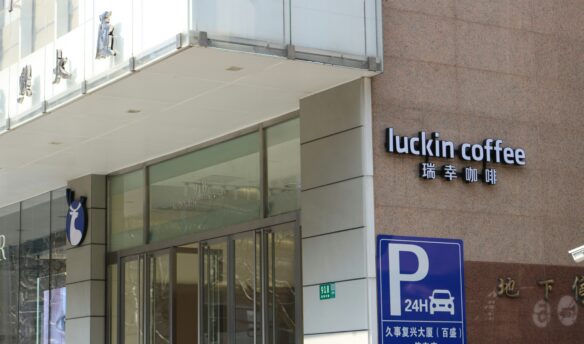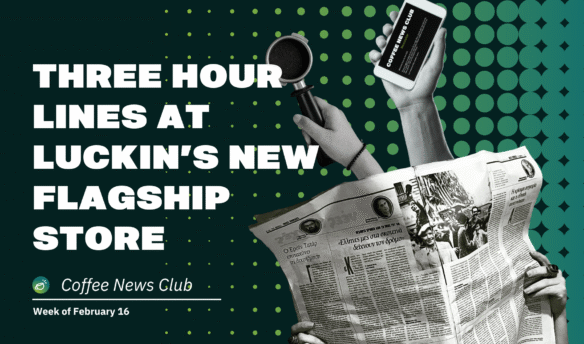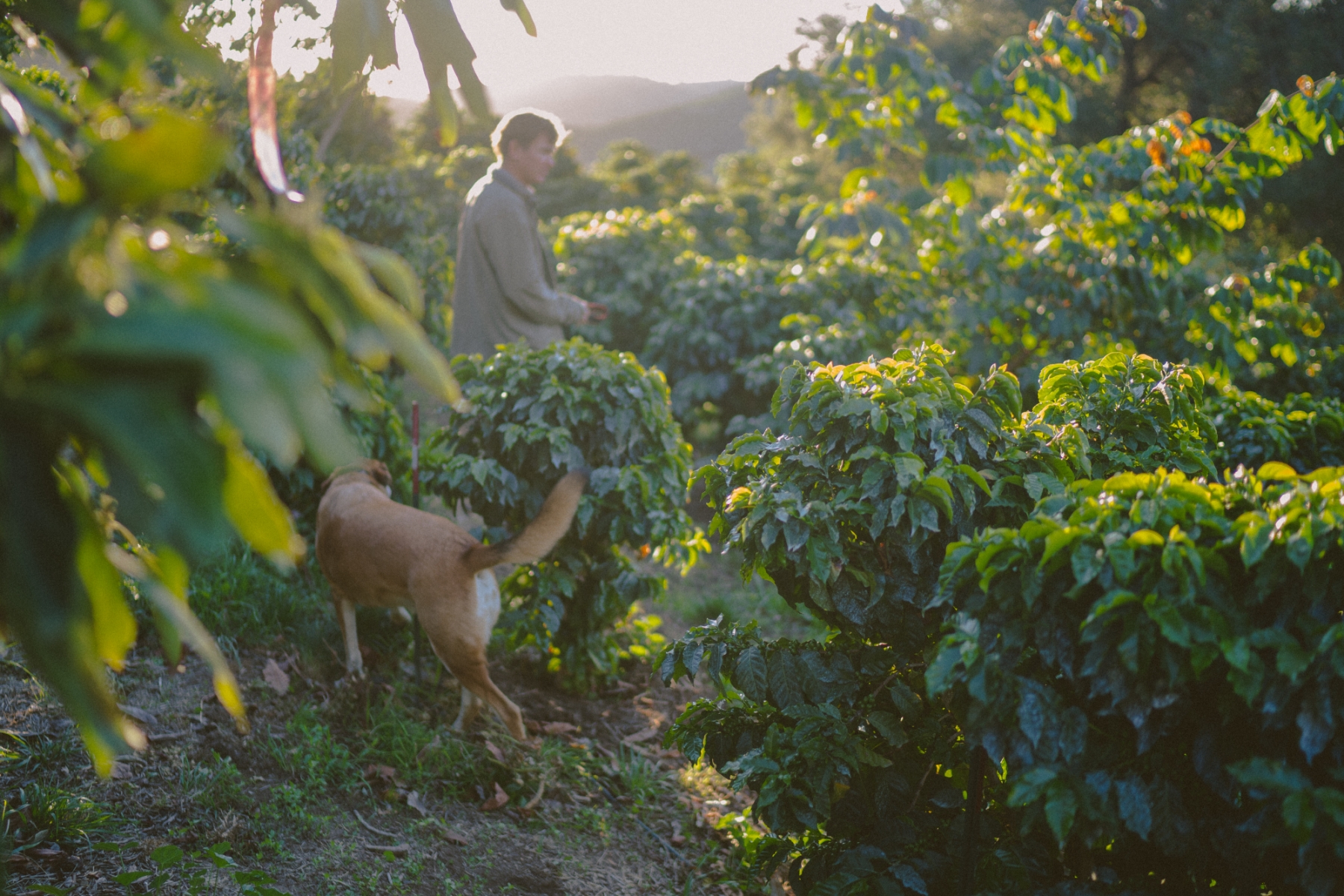Breaking news: coffee impacts sleep. Plus, Starbucks finally enters China’s discount coffee wars, and coffee pests don’t stand a chance against hi-tech drones.
‘New Software Developed To Detect Coffee Berry Borer Outbreaks’ – via Global Coffee Report
The coffee berry borer (CBB) is one of the most destructive pests in the coffee industry. Borers cause hundreds of millions of dollars worth of damage to farms around the world each year.
Researchers have been working on ways to counteract CBB damage, from conventional approaches such as spraying pesticides to more sustainable options, including harvesting coffee cherries more frequently to disrupt the CBB’s lifecycle and even introducing tiny parasitic wasps to consume the troublesome insects.
One of the reasons the beetles are so hard to fight is their microscopic size—the critters are so small that they are very hard to spot. To help, a team of scientists from Edith Cowan University in Australia developed a software system that uses drones and advanced image processing to detect CBB infections. The system is designed for drones to focus on detecting evidence of the presence of borers rather than identifying the insect itself.
“Coffee berry borers are very difficult to identify. They’re tiny little insects that are very difficult to see with the naked eye,” study co-author Dr. David Cook said in a press release. “However, instead of looking for the coffee berry borer itself, we looked for what it did.”
To explain how the software works, Cook used the analogy of drilling into a piece of wood, which leaves sawdust around the hole. “In the same way, when a borer bores into a coffee berry, they leave an enormous amount of debris, called frass and this is much easier to identify.”
If not detected and dealt with, CBB infestations can rapidly spread and decimate farms. With this new software, farmers can fly drones above their trees and quickly identify affected areas, allowing them to remove infestations and save their harvests.
Study co-author Dr. Leisa Armstrong explained the economic benefits of the technology. “Coffee is a high value crop. If you can eradicate the infection and save a crop rather than losing a percentage of the harvest, then it’s a financial improvement,” she said.
Read more about the drone pest detector here.
‘Oakland Coffee Shop at Center of Charged DOJ Discrimination Lawsuit’ – via Daily Coffee News
The United States Department of Justice (DOJ) has filed a civil rights lawsuit against a Palestinian-owned coffee shop in Oakland, California, alleging that the proprietor and staff refused to serve Jewish customers on multiple occasions.
As Nick Brown reports for Daily Coffee News, the DOJ’s lawsuit accuses Jerusalem Coffee House owner Fathi Abdulrahim Harara of discriminating against Jewish customers wearing baseball hats featuring the Star of David and telling them to leave.
According to the lawsuit, Harara and the cafe’s workers confronted two customers on separate occasions, accusing them of being Zionists and telling them to leave. The two alleged victims have also filed separate civil lawsuits against Harara. One of them, Jonathan Hirsch, has “a history of loud public fights,” according to the San Francisco Standard, although Hirsch denied that he entered the Jerusalem Coffee House with the intention of provoking a reaction.
A lawyer for Harara provided a statement to Daily Coffee News, calling the lawsuit “a political stunt designed to intimidate people who oppose Israel’s genocide and our government’s support of it.”
Read the full story on the lawsuit here.
‘Starbucks to Lower Prices in China as Competition Heats Up’ – via Reuters
China’s coffee industry is booming, but it has also become increasingly competitive as more shops open and strive to outdo their competitors by lowering prices. Meanwhile, Starbucks’ stores in the country have been struggling, with sales declining and its share of China’s coffee market falling from 34% in 2019 to 14% in 2024.
One reason for this fall is the rise of low-cost chains like Cotti Coffee and Luckin, the latter of which overtook Starbucks by store count in 2023 and continues to grow. These small-footprint, tech-heavy chains compete primarily on price, offering discounts to tempt customers in—something that Starbucks has previously said it wouldn’t get involved in.
That may now be changing. The coffee giant announced on social media that it will offer discounts on certain drinks, including teas and the Frappuccino. As Sophie Yu and Brenda Goh report for Reuters, an anonymous source explained that the discounts were not in response to the price war. “Starbucks likely has a longer-term strategy, which is to focus on the demand for non-coffee items in the afternoon among consumers,” the source said.
However, CEO Brian Niccol told Gregory Meyer of the Financial Times that the company needed to be “more competitive” in China and change its “pricing architecture” for non-coffee drinks.
Niccol also explained that Starbucks has received “a lot of interest” in possibly selling a stake in its Chinese business. The company has been seeking ways to revive its flagging fortunes in the country and has explored partnerships with private equity firms and other investors. The move could be worth several billion dollars, according to Bloomberg.
Read all about China’s chain coffee wars here.
More News
‘Keurig Agrees to $950K Settlement Over Alleged Coffee Maker Defect’ – via Daily Coffee News
‘The Collar Club, A Luxury Dog Spa Cafe In West Hollywood With Intelligentsia Coffee’ – via Sprudge
‘Nescafé Soars Past Its Regenerative Agriculture Goal’ – via Global Coffee Report
‘Starbucks Unveils Green Dot Assist, a Generative AI Virtual Assistant for Coffee Shop Employees’ – via The Spoon
Is Coffee Good For You?
It’s common knowledge that coffee impacts sleep, but exactly how?
Researchers at the University of Montreal in Canada investigated how caffeine affects the brain during sleep, discovering that it impairs essential brain functions crucial for restorative sleep.
For the study, published in the journal Nature Communications Biology, 40 volunteers spent two nights in a sleep lab. On the first night, they received 200 mg of caffeine, and on the second, a placebo. Researchers monitored their sleep using electroencephalography (EEG) to record electrical activity in the brain.
Ingesting caffeine before sleep pushed the subjects’ brains into a state of “criticality.” Co-author Karim Jerbi described criticality in a press release as “a state of the brain that is balanced between order and chaos.” Criticality enables the brain to function at an optimal level, but it can also interfere with rest and recovery.
This should all make sense to anyone who has consumed too much coffee and then been kept up all night with a racing mind. Interestingly, for those of us who have grown more susceptible to the effects of caffeine as we age, the impact on the brain was actually more pronounced in younger subjects.
The researchers attributed the increased impact to a higher density of adenosine receptors in the younger subjects. Adenosine is a molecule that accumulates in our brains during the day, contributing to fatigue. Caffeine works by blocking adenosine receptors, thereby making us feel alert.
“Adenosine receptors naturally decrease with age, reducing caffeine’s ability to block them and improve brain complexity, which may partly explain the reduced effect of caffeine observed in middle-aged participants,” said co-author Julie Carrier.
Beyond the Headlines
‘Addressing Coffee’s Funding Gap’ by Georgia Smith
Will Starbucks’ Big Bet on Its Baristas Pay Off?’ by Gregory Meyer








